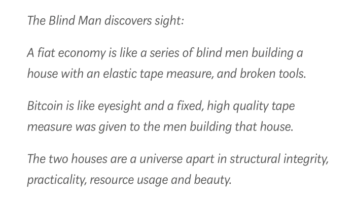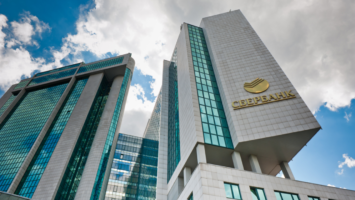The Head of NFT & Fan Tokens for Binance, Helen Hai, told us during the Paris Blockchain Week Summit (PBWS) that NFTs are a “technology still in the application stage of development.” We currently have art and music as the two main drivers of the NFT space, but the world’s largest exchange by market cap believes there is much more to come.
NFTs have recently seen a decline in interest, but Binance believes that the space is just getting started. This year we have already seen corporate America flock to register trademarks related to NFTs, governments look to issue their own NFTs, and live NFT events around the world. The current major use cases in focus are, as Hai suggests, art and music. For artists, NFTs present a way for undiscovered talent to reach a whole new market without the need for galleries and art curators to approve their work. For musicians, they offer hope for financial autonomy from record labels and publishing companies who retain the rights to most of their work in return for a moment in the spotlight.
Other NFT applications
Hai saw an exciting application for NFTs in the property space, not in the metaverse but in real life. NFTs offer more excellent “efficiency in terms of timing and accuracy” when dealing with property and conveyancing, which creates “a lot of value.” One way that NFTs could be utilized with property is to turn every building into an NFT. If the property network lived on the blockchain, then the buying and selling houses, flats, and land could take minutes instead of months. Further, ownership authentication would be both fully transparent and easily regulated. However, the issue Hai sees with attaining adoption within the property space comes in the form of a common crypto problem; regulation and traditional adoption. Hai cites the main concern as “what will happen to the traditional industry” if NFTs take over the property market?
The failure of traditional industries to embrace technology is not a new concept. This is especially true of industries that do not have a large percentage of young talent in decision-making roles. Only 12% of partners in legal firms in the UK are under 35. Indeed, the desire to adopt technology is not the only barrier. Issues around regulation are one of the major topics of 2022, with several talks on the matter being held at PBWS last week. However, Hai believes the solution to progress within the NFT and blockchain spaces is better communication rather than regulation. She states that,
“Regulation is a one-way thing and it’s not what we need. What we need is better communication which is a 2-way thing. You set up a rule that you don’t understand and you start to regulate. If you don’t communicate that will never work.”
The problem with mass adoption
Hai acknowledges that the gateway to NFTs is still a problem for mass adoption. Many people still don’t know how to get into the crypto world, and people are concerned about the security of different platforms. Given the amount of choice available, Hai notes that it is overwhelming for people unfamiliar with crypto to know who to trust. It is, for this reason, that she states that Binance focuses so much on education. They want to help users make informed decisions and decide what should “be sustained and what should be eliminated, not us.” Hai says that “our cardinal principle at Binance is how we can put the users first.” There are so many things to invest in with the blockchain space; her concern is that people become disenfranchised by investing in projects that go to zero within a couple of years. Hai believes that “technology works for people and the human race should try to improve the way we govern.”
Can NFTs save the world?
NFTs have seen some fantastic use cases over the past few years, but the technology can be applied to many new aspects of human life. One way NFTs can do this is through charitable endeavors. Hai also runs the charity arm of Binance, Binance Charity which gives 100% of all proceeds to the end beneficiary with zero processing fees. Binance Charity has launched several charitable projects using NFTs, such as the Tree Millions, which aims to plant 10 million trees through NFTs.
How do you think NFTs could be used in the future? Can we save our planet through the use of NFT authentication? Let us know on Twitter or via email.
























Comments (No)